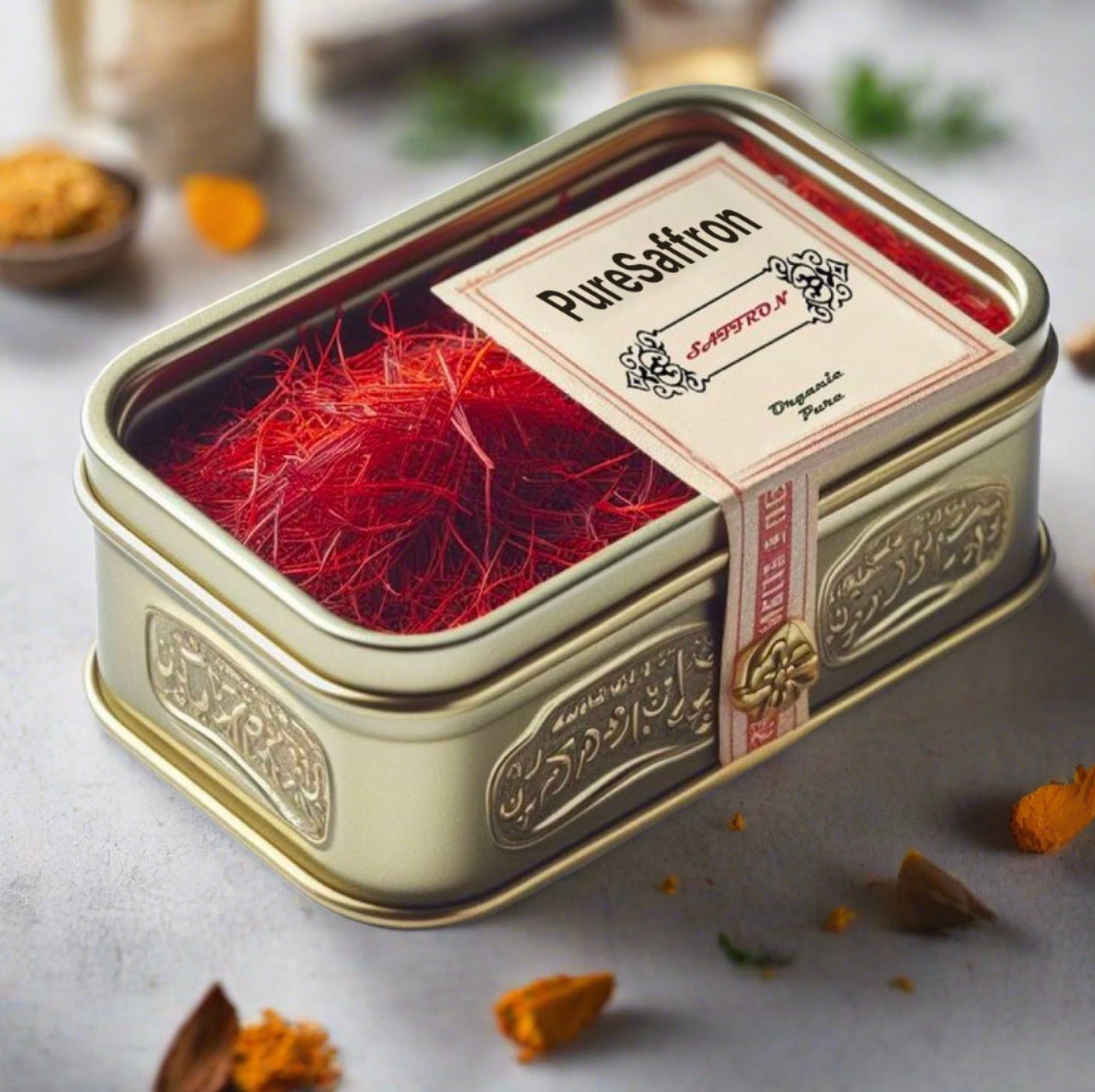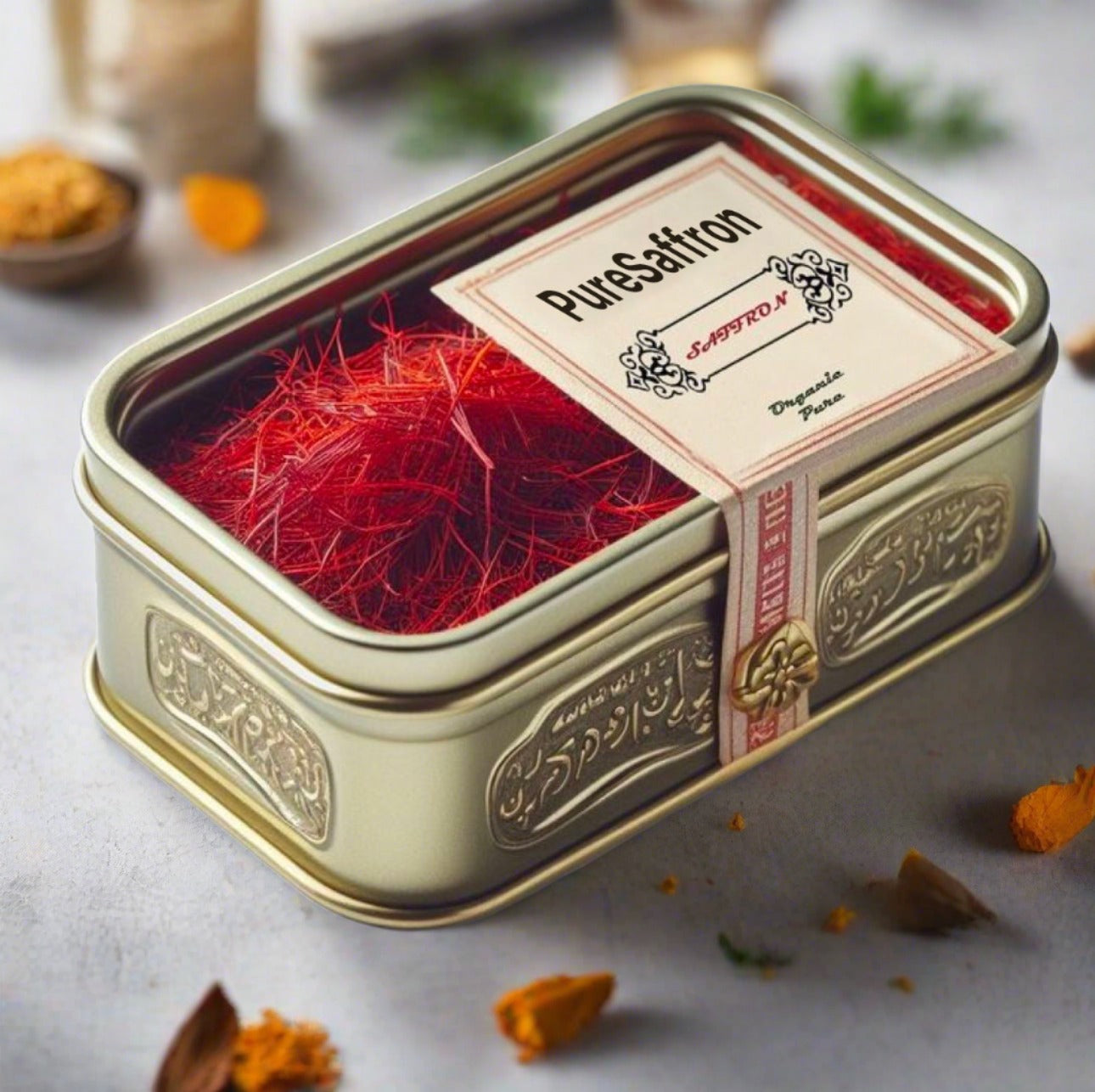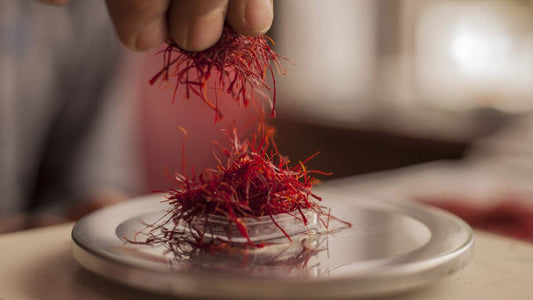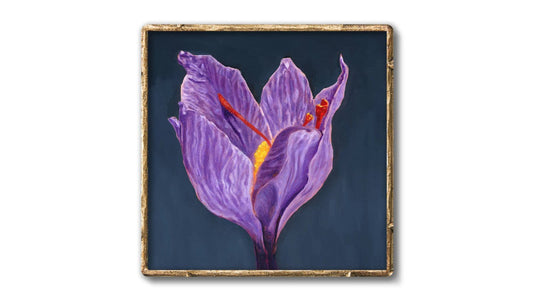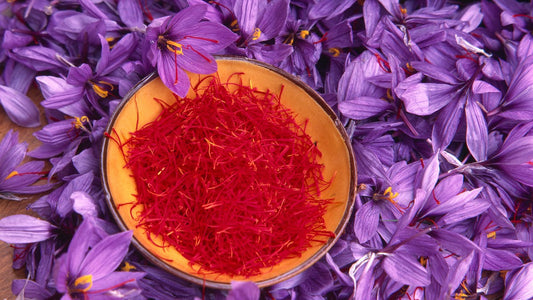
Saffron and Cancer Prevention: A Natural Ally for Your Health
Ara OhanianShare
Introduction to Saffron and Cancer Prevention
Saffron, often referred to as the "red gold," is a highly prized spice known for its vibrant color, unique aroma, and remarkable health benefits. But did you know that saffron may play a role in cancer prevention? Recent scientific studies have shed light on the potential anti-cancer properties of saffron, making it a topic of growing interest in the field of natural health remedies.
In this blog post, we'll explore the connection between saffron and cancer prevention, diving into its bioactive compounds, their mechanisms of action, and the latest research. Whether you're looking to enhance your diet or simply curious about the health benefits of saffron, this article is packed with valuable insights.
What Makes Saffron Special?
Saffron is derived from the dried stigmas of the Crocus sativus flower. It is rich in bioactive compounds, including:
- Crocin: A carotenoid responsible for saffron's vibrant color and a potent antioxidant.
- Safranal: The compound that gives saffron its distinct aroma and has shown neuroprotective and anti-cancer properties.
- Picrocrocin: A compound contributing to saffron's unique taste and potential health benefits.
These compounds are believed to contribute to saffron's wide range of health benefits, including its potential role in preventing cancer.
How Saffron May Help in Cancer Prevention
The potential link between saffron and cancer prevention lies in its anti-inflammatory and antioxidant properties. Here's how it works:
- Neutralizing Free Radicals: Saffron's bioactive compounds like crocin and safranal act as powerful antioxidants, neutralizing free radicals that can cause DNA damage and lead to cancer.
- Inhibiting Tumor Growth: Studies have shown that crocin can suppress the growth of cancer cells by inducing apoptosis (programmed cell death) while leaving healthy cells unaffected.
- Reducing Inflammation: Chronic inflammation is a known risk factor for cancer. Saffron's anti-inflammatory properties may help reduce this risk.
- Enhancing Immune Response: Saffron may boost the immune system, enabling the body to better fight off cancerous cells.
Scientific Studies Supporting Saffron's Anti-Cancer Properties
Several scientific studies have explored the potential of saffron in cancer prevention and treatment. Here are a few noteworthy findings:
- A study published in the journal Anticancer Research highlighted crocin's ability to inhibit the growth of breast cancer cells.
- Research in the journal Phytomedicine demonstrated that saffron extract could suppress the proliferation of colorectal cancer cells.
- A study conducted on animal models found that saffron significantly reduced the incidence of skin cancer by protecting against oxidative stress.
- In vitro studies have shown that crocin and safranal can induce apoptosis in leukemia, lung, and ovarian cancer cells.
While these findings are promising, it's important to note that most studies have been conducted in laboratories or on animals. Human clinical trials are needed to confirm saffron's efficacy in cancer prevention and treatment.
How to Incorporate Saffron into Your Diet
Adding saffron to your diet is a simple way to enjoy its potential health benefits. You can use saffron in:
- Cooking: Add a few strands of saffron to rice, soups, or desserts for a rich flavor and vibrant color.
- Tea: Brew saffron strands in hot water to create a soothing and aromatic tea.
- Infused Milk: Mix saffron with warm milk for a comforting and nutritious drink.
Keep in mind that a little saffron goes a long way. Just a few strands are enough to enjoy its benefits.
If you're looking for high-quality saffron to incorporate into your daily routine, check out our Persian Pure Saffron. Our saffron is 100% pure and sourced directly from trusted growers.
FAQs About Saffron and Cancer Prevention
1. Can saffron cure cancer?
No, saffron cannot cure cancer. However, studies suggest that it may help prevent cancer or slow its progression due to its antioxidant and anti-inflammatory properties.
2. Is saffron safe for daily consumption?
Yes, saffron is generally safe for daily consumption in small amounts (up to 1.5 grams per day). Consuming excessive amounts can lead to adverse effects, so moderation is key.
3. Are there any side effects of using saffron?
Saffron is safe for most people when consumed in moderation. However, excessive intake can cause nausea, dizziness, or allergic reactions in some individuals.
4. How long does it take to see the benefits of saffron for cancer prevention?
The time it takes to see benefits varies depending on individual factors like diet, lifestyle, and health conditions. Consistent use of saffron over time may contribute to overall health benefits.
5. Can saffron be used alongside conventional cancer treatments?
Saffron may complement conventional treatments but should not replace them. Always consult your healthcare provider before incorporating saffron or any supplement into your treatment plan.
